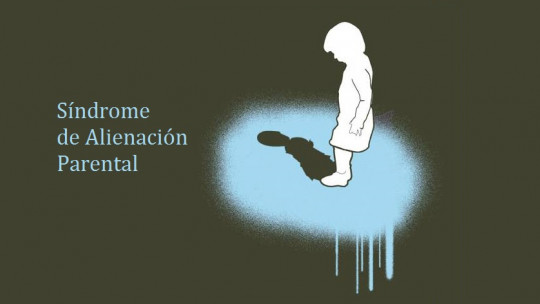
Managing a breakup in the best way possible is never an easy process. Therefore, when in addition to a breakup, one must face a separation in which children are involved, the problem seems to magnify. Many doubts may arise about the well-being of the children, even questioning maintaining the relationship exclusively for the well-being of the children and leaving aside their own. If you have come this far, it is best to listen to yourself and look for ways to deal with this process.
Parental separation is a complex process that can deeply affect children It is essential to understand the various emotions they might experience during this period. Some common reactions include confusion, sadness, anger, or fear. Paying close attention to your children’s emotional cues will help you tailor your approach to their individual needs.
In this article, we are going to offer you, as a guide, the steps you must follow to prepare and maintain a conversation with your children in which both parents inform them about the separation. It is especially important to be aware of children’s emotions and put aside, at least during the conversation, parental conflicts to focus on the children’s well-being.
Understanding children’s emotions
It is essential to remember that children can express their emotions in different ways, whether through behavior, changes in school performance, or expressing their feelings verbally. Empathy plays a crucial role in this process; Putting yourself in your children’s shoes will allow you to understand their perspectives and respond more effectively.
Patience will be your ally. Adapting to a new reality takes time, and each child processes information at their own pace Providing a supportive and understanding environment will allow your children to feel safe expressing their emotions. Encouraging open communication is essential to building a solid foundation during this process.
It is important to note that parental separation is not the children’s fault. Clarifying this point and reinforcing the unconditional love that both parents feel towards them will help reduce the emotional burden. It is also crucial to maintain a positive attitude about the possibility of building new, healthy family dynamics, reinforcing the idea that change does not mean the end of love and care.
Finally, consider seeking professional help if you notice that your children’s emotional reactions are intense or persistent. Child Therapists May Provide Additional Strategies to help your children cope with this difficult period and build emotional resilience.
Preparation before speaking
Before approaching the conversation with your children about separation, it is crucial to take the time necessary for emotional and logistical preparation. The decision to communicate the separation must be thoughtful and careful. Remember that while preparation is essential, there is no perfect time. The most important thing is to approach the situation with empathy and provide a safe space for your children to express their emotions and ask questions. Here are some steps that can help you prepare for the conversation:
1. Understand your own emotions
First, reflect on your own emotions. Recognize and process your feelings so you can approach the conversation calmly and clearly This process will allow you to communicate more effectively with your children.
2. Seek coordination
Coordinate with the other parent to ensure you are both on the same page. Showing unity and mutual support during the conversation will provide your children with a consistent and reassuring message.
3. The right time
Choose the right time for the conversation. Avoid broaching this topic during times of stress or when your children have other important concerns, such as school exams. Find a quiet, comfortable time where everyone can talk without interruptions.
4. Be clear and simple
Prepare the message in a clear and simple way, adapting it to the age of your children. Use understandable language and avoid unnecessary details. Honesty is essential, but adjust the information to what is appropriate for your understanding
5. Take enough time
Make sure you have enough time to respond to your children’s questions and concerns. Patience and availability are key to strengthening trust and communication during this process.
United approach: presenting a united front
The way parents approach separation significantly influences how children process the news. He reminds us that although separation is a significant change, the way parents handle the transition can have a positive impact on children’s ability to adapt. A united and compassionate approach helps build a solid foundation for your children’s emotional well-being during this process. Here are some strategies to present a coherent and positive message:
1. Joint communication
First and foremost, communicate the decision together. Prevent children from perceiving unilateral blame or responsibilities. He explains that, although the relationship between the parents is changing, the love for them remains unchanged.
2. Cooperative planning
Plan the conversation so that both parents are present This helps convey the idea that you both share responsibility and care for the children, even if you don’t live together.
3. Avoid confrontations
During the conversation, avoid confrontations or criticism of the other parent. Focus on the positive aspects of the relationship and highlight the intention of both parents to continue collaborating in parenting.
4. Look for continuous communication
Establish clear guidelines for ongoing communication between parents. Maintaining open lines of dialogue about issues related to your children helps build an environment of support and collaboration.
It reinforces the idea that separation is not the children’s responsibility. Reassure them that their love and safety will remain a priority for both parents, regardless of the new family dynamic.
The conversation: step by step
Talking to your children about separation is a crucial step that requires sensitivity and empathy. Here’s a step-by-step guide to tackling this difficult conversation:
1. Choose the right time
Before starting the conversation, make sure you are in a quiet environment without interruptions. Choose a time when your children are relaxed and open to communication.
2. Start with empathy
Start by expressing your love and affection towards them Reassure them that they are loved unconditionally and that separation does not change that love. Become aware of the emotions that your children may experience at these moments and get ahead of them.
3. Use clear language adapted to age
Adjust the information according to the age of your children. Use simple language and avoid unnecessary details. It is essential to be honest, but without overwhelming them with information they may not fully understand.
4. Explain the situation clearly
Describe the separation clearly and directly, avoiding blaming a parent He emphasizes that the decision is an adult and that both will continue to be an important part of the children’s lives.
5. Be open to questions
Encourage your children to ask questions and express their feelings. Listen carefully and validate their emotions. It is normal for them to experience a range of emotions, from confusion to sadness or anger.
6. Offer security and routines
It reaffirms the commitment of both parents to provide security and stability. Reassure your children that they will continue to maintain familiar daily routines and activities.
7. Show continued support
After the initial conversation, keep open lines of communication. Make sure your children know they can express their feelings at any time and that both parents are there to support them.
Responding to questions and emotions
After the initial conversation about separation, your children will likely have questions and emotions that need to be addressed on an ongoing basis. Here are some strategies to handle this critical phase:
1. Be available
Emphasize your availability to talk and answer questions at any time. Foster an open environment where your children feel comfortable sharing their thoughts and feelings.
2. Validate emotions
It is normal for children to experience a variety of emotions after the news Validate their feelings and avoid minimizing them. Understanding and support are essential to help them process what they are feeling.
3. Offer additional explanations if necessary
If your children have more questions, provide additional explanations as needed. Keep the information clear and adapted to their level of understanding, but always maintain empathy towards their doubts and possible curiosity.
4. Reinforce love and support
Constantly reiterate your love and support. Reassure them that both parents are committed to being an active part of their lives and that separation does not change the love you feel for them.
5. Consider professional help
If you notice that your children’s emotions are overwhelming or persistent, consider seek help from a professional, such as a child therapist These professionals are trained to guide children through difficult emotional processes.
Conclusions
In the process of communicating the separation to children, empathy, unity between parents, and attention to children’s emotions are essential. Emotional preparation, timing, and clear communication form the basis of an effective conversation. Continuous response to questions and emotions, along with reinforcement of love and support, establishes a path toward adaptation. With patience and additional resources, a solid foundation can be built for children’s emotional well-being during this challenging process.








